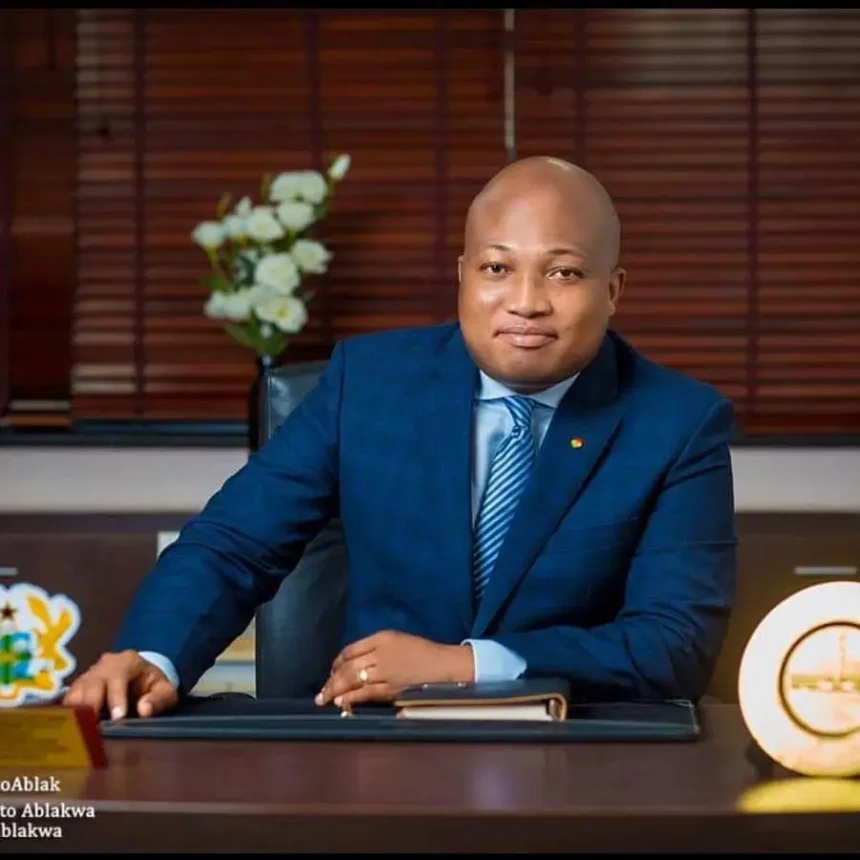Samuel Okudzeto Ablakwa, the Minister for Foreign Affairs and Regional Integration, has disclosed shocking new details about a multi-million-dollar corruption operation within Ghana’s Washington D.C. diplomatic mission. His revelations suggest that the scandal involves more than just a lone rogue employee, pointing to a wider network of collusion and systemic misconduct.
In his address to Parliament, the Minister identified Mr. Fred Kwarteng, a locally recruited staffer, as the key figure behind a scheme that exploited digital loopholes and oversight gaps. Kwarteng allegedly ran an unauthorized visa and passport dispatch business through a company called GTC, capitalizing on the mission’s lack of integrated digital systems.
A major part of the scandal revolves around failed efforts to unify Ghanaian Missions’ online platforms. Despite a 2020 contract with EMH Global—renewed in 2024—to standardize embassy websites, the Washington Mission refused to cooperate. This refusal allowed GTC to embed links that diverted applicants from official embassy pages to GTC’s private site, where they faced extra charges.
Minister Ablakwa emphasized, “Had this integration been implemented, this illicit redirection would have been prevented,” dismissing the notion that the misconduct was the work of a single individual.
With the shift to fully online visa and passport processing during the COVID-19 pandemic, GTC took advantage by charging applicants additional fees—$29.75 for courier services and $60 to $100 for assistance filling forms. Remarkably, 99% of applicants used GTC’s services.
GTC processed approximately 250 visas or passports daily, totaling around 62,500 annually. This alone generated roughly $1.86 million per year in courier fees. When combined with additional charges, Kwarteng is estimated to have amassed over $4.8 million annually from this unauthorized operation.
The Minister highlighted that “none of these funds were remitted to the Ministry,” describing the scheme as “exploitation of vulnerable applicants and a blatant betrayal of public trust.”
The Ministry has engaged EOCO and the Attorney General to trace the proceeds and pursue prosecutions. “This directive came directly from the President, and we have acted swiftly,” the Minister affirmed.
He also revealed that the Auditor-General had flagged irregularities at the Embassy as far back as two years ago, including procurement issues and financial mismanagement that were inadequately addressed.
Further investigation uncovered that GTC was initially co-owned by Kwarteng and his ex-wife, raising significant conflict of interest concerns. Statements from current and former embassy staff, along with Kwarteng’s own disclosures, confirm he did not act alone.
“There appears to be a network of individuals who facilitated or benefited from this scheme,” the Minister stated, emphasizing that the scale and sophistication of the operation point to organized collusion rather than isolated misconduct.
The scandal has prompted urgent calls for reform in Ghana’s diplomatic operations, focusing on financial accountability, transparency, and digital modernization.
Minister Ablakwa concluded, “These revelations reinforce our commitment to comprehensive reform across all Missions. We must examine how a system was created to enrich one individual at the expense of the public, with help from others.”
A comprehensive report from the Internal Investigative Committee is expected shortly, alongside potential prosecutions and administrative measures to restore integrity within Ghana’s diplomatic services.






